
views
X
Research source
Identifying a Property
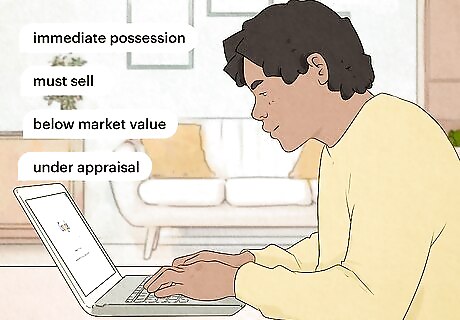
Search for abandoned houses online. You may be able to find abandoned houses near you by searching online real estate websites and property databases. If you have a specific property in mind, you can search its address to learn more about it. Look for listings on real estate sites with keywords such as "immediate possession," "must sell," "below market value," or "under appraisal." These properties are likely recently abandoned, or may have been subject to foreclosure. If you're looking for abandoned houses to photograph or explore, you may be able to find an online forum or website that covers abandoned houses and other properties in your area.

Drive through neighborhoods. If you know of areas near you where there might be abandoned houses, you can go out and explore. If the area seems like a safety risk, have a friend or loved one come with you. Look for signs of abandonment, such as an overgrown yard or boarded-up windows. Multiple for-sale signs in the yard also may be a sign that the place has been abandoned – especially a sign that says "For Sale by Owner." If you see a house that looks abandoned from the road, find a public place nearby where you can park and get a closer look from the sidewalk. You need to be cautious about trespassing on private property, so it's probably best if you don't pull straight into the driveway.

Talk to neighbors about the house. If the houses next to the abandoned house you've found seem occupied, knock on the door and ask them about the property. They can probably tell you if it's actually abandoned, and how long it's been empty. If you're interested in purchasing the house, the neighbors may be able to give you some information about the people who previously lived there. Neighbors may be able to fill you in further on the extent of the house, or how long it's been since someone lived there. If the place is truly an eyesore, they may be aggravated enough about the situation to talk about it at length. You may want to consider taking notes if they have any concrete information you can use to get information about the house. Ask them for contact information in case you want to get in touch with them later on.
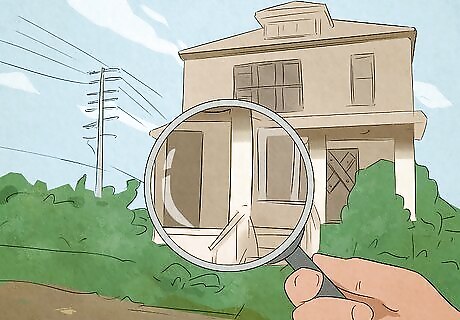
Inspect the property. Take care not to go onto the property or attempt to enter the house – that could be considered trespassing. But you can find out a lot of information about the state of the house without ever stepping foot on the property. If the mailbox is stuffed full of letters, check the date on the outside of the envelope at the bottom. That will give you an idea of the last time the mail was checked. Overgrown grass and untended gardens can provide signs as to how long the house has been abandoned, especially during warmer months. If there are weeds growing through cracks in the driveway, that indicates no one's used the driveway in awhile. If you can locate the power meter box, check to see if the power is running or if the master switch is off. If the power's off, the house typically is unoccupied and may have been for awhile.
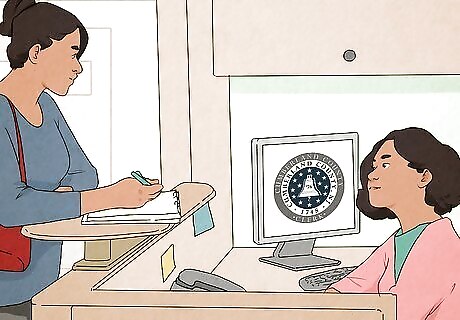
Check with the city or county records office. As long as you have a street address, there should be city and county records, including property tax records, that will lead you to the name of the last record owner. Even if the person's name is not on a deed or any other ownership document, the last person to pay the property taxes is the last person who had responsibility for the property. It may not be an individual, but rather a bank or mortgage company.
Exploring the Property

Gather information about the property. Information about the property can lead you to the name and location of the owner, or at least someone who once lived there. You can ask them for permission to explore or photograph. You can do online search for public records about the last known owners to try to locate who currently controls the property. One of the easiest ways to find a property owner's name is to go to the county tax assessor's office and find out who last paid property taxes for the property.
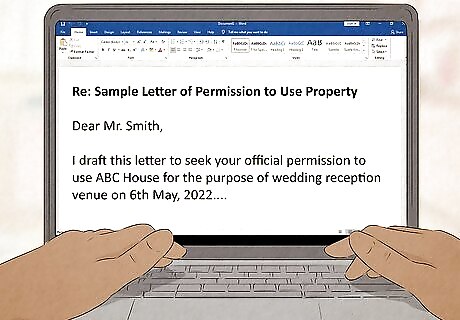
Get permission. All abandoned houses technically are owned by somebody. If you go into the house without that person's permission, you are trespassing. If caught, you could end up paying a fine or even spending some time in jail. If you have a name on a deed, that person may be fairly easy to locate. However, if the last owner on record has died, or if the property has changed hands several times, it may be difficult to figure out on your own who owns the property or how to get in touch with them. Send a postcard or letter to the last known owner and explain your intentions. If you plan to take photos let them know, and offer to send them digital copies. Stress that you do not intend to disturb anything or cause a nuisance.
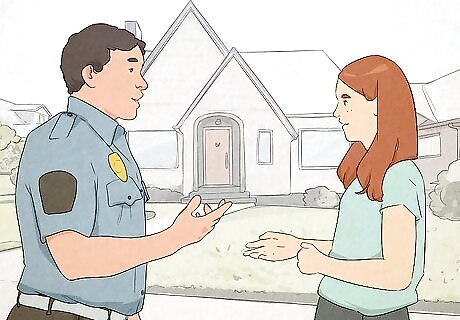
Notify local police. Often you won't be able to find the owner of an abandoned house, or they won't respond to your cards. If you still want to explore the property, contact the local police department so you can stay on the right side of the law. Sometimes police are willing to escort urban explorers visiting abandoned property, especially if the property has been abandoned for a long time and is well known in the community. Go to the police station in person and explain your intentions. If you've previously explored and photographed other abandoned places, you might bring along some examples of your work.
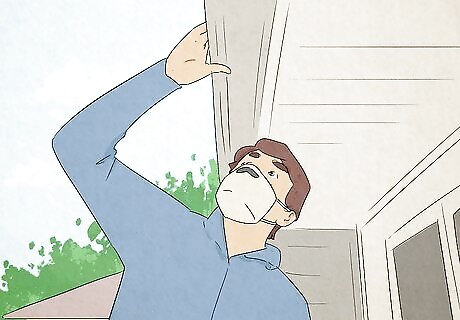
Take necessary safety precautions. Exploring an abandoned house is dangerous, even under the best of circumstances. Always do your exploring during the day and take a friend or two with you so you're not alone. Make sure your mobile phone is charged and check its signal regularly while you're exploring. Wear hiking boots or steel-toed boots to protect your feet, along with jeans and a long-sleeved shirt. You may want to bring a mask to cover your face in case you run into dust, mold, asbestos, or other material you shouldn't be breathing.

Be respectful of the property. Urban explorers have a mantra to "take nothing but photographs" and "leave nothing but footprints." While some decay or destruction may be unavoidable as you move through an abandoned home, don't intentionally disturb the surroundings. If you got permission from the owner to explore the property, follow up with them after your exploration by sending them a thank you card or email with digital copies of any photos you took.
Taking Over the Property

Attempt to contact the most recent owner on record. The person's name who appears on the most recent deed for the property is considered the "owner of record" or "record owner" of the property. If you have a mailing address for them (that isn't the abandoned house), send them a postcard. If you're looking at contacting a bank or mortgage company, a phone call typically will do. Explain who you are and your interest in the property. Someone should be able to find information for you. If you don't get a response after a month or so, assume that the person either no longer has an interest in the property or that the address you have for them is no good.
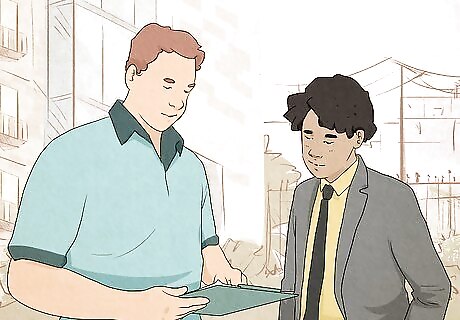
Talk to a real estate agent to learn more about the property. If you're interested in purchasing the property and can't find the owner, a real estate agent may be able to help. They typically have access to more information about the property than is available to the general public. They also may be able to contact attorneys or other professionals who have information about the property or its owners.

Ask a title company to run a title search on the property. Most title companies will conduct the search for a fee of $50, but they may not charge you if you purchase title insurance through them. In addition to revealing the owner, the title search will detail any liens or outstanding property taxes against the property. If you just want to know who the owner of the property is, you can check with the county for free. Although your real estate agent can't do a title search, they may request one from a title company on your behalf.

Talk to an attorney if you want to purchase an abandoned house. Some cities, including Atlanta, Detroit, and Cleveland, have passed laws that make it easier for you to purchase an abandoned home, particularly one next door to your own house. An attorney can help you navigate these laws. If you live in an area where abandoned houses are common, it's likely there is such a law in place. An attorney also can help you if you want to purchase an abandoned house but are having trouble locating the owner of the property.
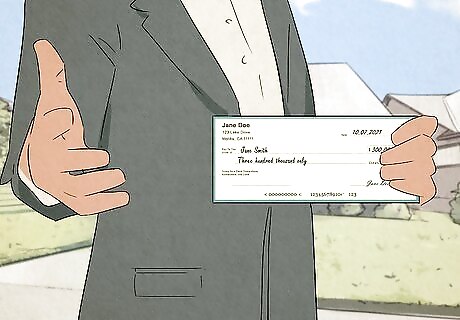
Make an offer to purchase the house. If you managed to locate the owner of the property and they are receptive to you, it's possible that you could purchase the property – probably for far less than the market value of the home when it was in good repair. Because of the work involved to rehabilitate a house that's been sitting empty for awhile, abandoned properties typically can be purchased for very low rates. If you're going to buy the house, get estimates on the work to be done on it, so you can quote these figures back to the owner. The owner may be behind on property taxes. When you purchase the house, part of your offer amount should go to pay those back taxes, as your taxes should be prorated to begin after you purchase the home. Before you sign your contract, make sure that it addresses the back property taxes.



















Comments
0 comment